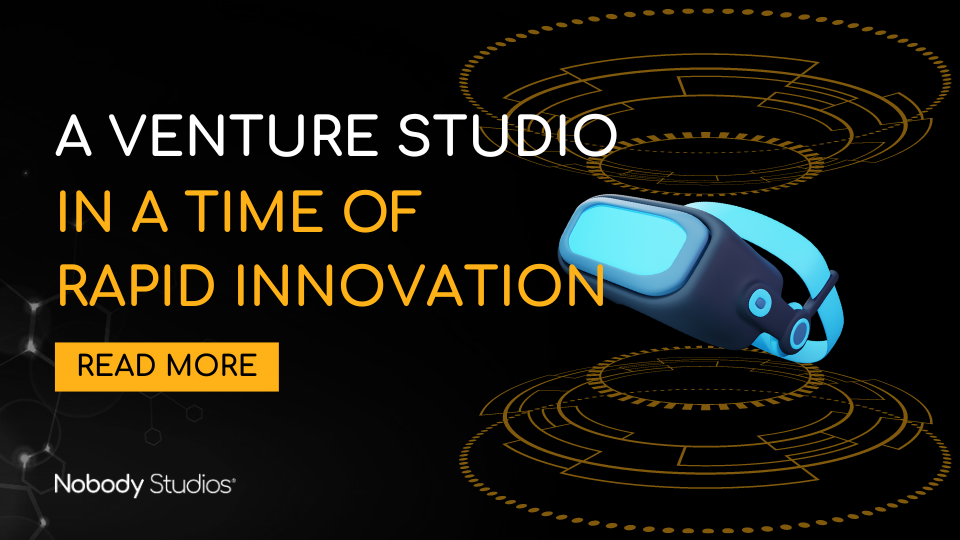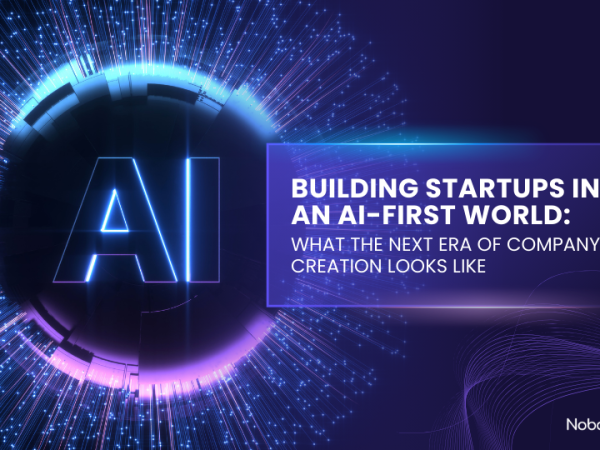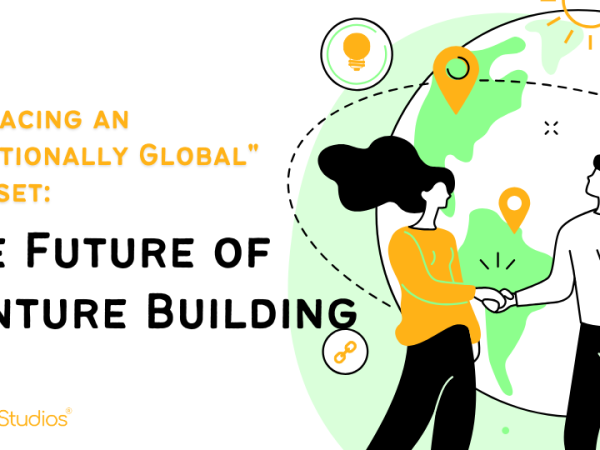
The Venture Studio model is a successful and proven model, helping build companies faster and scale them more ambitiously [1,2,3] . In fact, the Venture Studio approach has shown over 30% better results when compared with the traditional approach to building startups [4].
With the rapid change in the pace of technical innovation and where and how it is applied, it is not surprising that this model is also undergoing an evolution.
What will this evolution look like? Well, nobody really knows, but there are several shifts that will likely play a key role in shaping it.
Three Key Paradigm Shifts
One of the shifts we see in Venture Studios is that they increasingly foster extensive collaboration ecosystems. Networks are everything in company building, and the resources they provide allow studios to tackle the increasingly complex problems that future companies need to solve. Whether it is through partnerships with companies, joint research or even working with other studios, the pooling of resources and expertise is more critical today than ever.
Another shift that is key to Studio and company survival is the ability to move at high velocity, experiment with a broad set of ideas, and quickly select the ones that are viable solutions to real business problems. This helps keep studios ahead of the curve and allows them to respond swiftly to shifting market dynamics.
One more thing; the talent shift that we’ve seen in recent years, from local to global, from in-office to remote at home has been nothing but remarkable. The Covid-era became a forcing function that changed mindsets as much as it did tools and platforms. Just a few years ago companies that allowed work from home once in a while were considered unique. Today companies that do not allow work from home for a good part of the week seem old school and less in touch.
Sure, building and scaling a distributed global network of talent is challenging, but if done right, it can be a solid foundation for extensive collaboration and high-velocity company creation.
Becoming a Nobody
When I was first introduced to Nobody Studios’ goal of building 100 companies in 5 years I had two reactions; the first was that this was, well, somewhat unreasonable. The second was that, hmm, maybe this kind of thinking is precisely what is needed to drive the evolution of the Venture Studio model. Progress after all always depends on the unreasonable person, as they, unlike the reasonable person, persist in trying to adapt the world to them [5].
This goal was not about the number of companies they would build or the number of years it would take to build them; it was almost entirely about being bold, about focusing on a future state, and about driving execution and figuring out things along the way.
Achieving this goal also demands a network, in this case, a crowd-infused collaboration ecosystem, made of partners and advisors. Interestingly not only did this ecosystem set up to help the studio build companies, but it was also set up to benefit from this success through equity and ownership.
As I join this Studio and team as CTO, I am very aware of the challenges and obstacles that we will face. Some are familiar and some will be entirely new. Moving at speed and scale always brings new twists and surprises. It demands an organized, systematic, and repeatable approach to building companies. This sounds like “Machinery” but is in reality less about process and tools and more about getting the right people together, enabling them, and driving hard. “To achieve great things, two things are needed: a plan and not quite enough time” [6].
References
[1] https://www.linkedin.com/pulse/venture-studios-can-startup-creation-systematized-anand-babu/
[2] https://www.linkedin.com/pulse/how-venture-studios-can-achieve-higher-returns-than-vcs-wim-torfs/
[3] https://highalpha.com/why-venture-studios-are-the-future-of-company-building
[4] (https://morrow.co/disrupting-the-venture-studio-landscape/
[5] The Power of Unreasonable People: How Social Entrepreneurs Create Markets That Change the World, https://tinyurl.com/28p6xya8
[6] Leonard Bernstein, https://tinyurl.com/2chy7txo
ABOUT THE AUTHOR
Eyal Shavit
Chief Technology Officer, Nobody Studios
Dynamic tech leader with over 20 years of AI expertise, creating and scaling AI products, innovating through applied research, and building and growing product and technology teams in-house and in global settings. Thriving in fast-paced, entrepreneurial environments.



